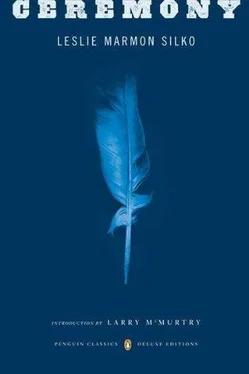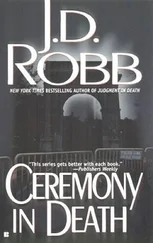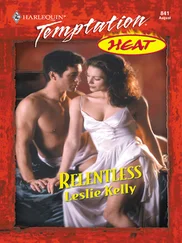Old Grandma pulled the chair from the foot of the bed, and the old man sat down. He nodded at Tayo but didn’t say anything; Tayo didn’t understand what he was waiting for until he saw old Grandma wearing her coat and wool scarf, waiting while Auntie put on her coat. They left, and old Ku’oosh waited until the voices of the women could no longer be heard before he moved the chair closer to the bed. He smelled like mutton tallow and mountain sagebrush. He spoke softly, using the old dialect full of sentences that were involuted with explanations of their own origins, as if nothing the old man said were his own but all had been said before and he was only there to repeat it. Tayo had to strain to catch the meaning, dense with place names he had never heard. His language was childish, interspersed with English words, and he could feel shame tightening in his throat; but then he heard the old man describe the cave, a deep lava cave northeast of Laguna where bats flew out on summer evenings. He pushed himself up against the pillows and felt the iron bed frame against his back. He knew this cave. The rattlesnakes liked to lie there in the early spring, when the days were still cool and the sun warmed the black lava rock first; the snakes went there to restore life to themselves. The old man gestured to the northeast, and Tayo turned his head that way and remembered the wide round hole, so deep that even lying on his belly beside Rocky, he had never been able to see bottom. He remembered the small rocks they had nudged over the edge and how they had listened for some sound when the rocks hit bottom. But the cave was deeper than the sound. Auntie told them she would whip them if they didn’t stay away from that place, because there were snakes around there and they might fall in. But they went anyway, on summer nights after supper, when the crickets smelled the coolness and started singing. They were careful of the snakes that came out hunting after sundown, and they sneaked up to the cave very quietly and waited for the bats to fly out. He nodded to the old man because he knew this place. People said back in the old days they took the scalps and threw them down there. Tayo knew what the old man had come for.
Ku’oosh continued slowly, in a soft chanting voice, saying, “Maybe you don’t know some of these things,” vaguely acknowledging the distant circumstance of an absent white father. He called Josiah by his Indian name and said, “If he had known then maybe he could have told you before you went to the white people’s big war.” He hesitated then and looked at Tayo’s eyes.
“But you know, grandson, this world is fragile.”
The word he chose to express “fragile” was filled with the intricacies of a continuing process, and with a strength inherent in spider webs woven across paths through sand hills where early in the morning the sun becomes entangled in each filament of web. It took a long time to explain the fragility and intricacy because no word exists alone, and the reason for choosing each word had to be explained with a story about why it must be said this certain way. That was the responsibility that went with being human, old Ku’oosh said, the story behind each word must be told so there could be no mistake in the meaning of what had been said; and this demanded great patience and love. More than an hour went by before Ku’oosh asked him.
“You were with the others,” he said, “the ones who went to the white people’s war?”
Tayo nodded.
“There is something they have sent me to ask you. Something maybe you need, now that you are home.”
Tayo was listening to the wind outside; late in the afternoon it would begin to die down.
“You understand, don’t you? It is important to all of us. Not only for your sake, but for this fragile world.”
He didn’t know how to explain what had happened. He did not know how to tell him that he had not killed any enemy or that he did not think that he had. But that he had done things far worse, and the effects were everywhere in the cloudless sky, on the dry brown hills, shrinking skin and hide taut over sharp bone. The old man was waiting for him to answer.
Tayo reached down for the slop jar and pulled it closer.
“I’m sick,” he said, turning away from the old man to vomit. “I’m sick, but I never killed any enemy. I never even touched them.” He was shivering and sweating when he sat up.
“Maybe you could help me anyway. Do something for me, the way you did for the others who came back. Because what if I didn’t know I killed one?”
But the old man shook his head slowly and made a low humming sound in his throat. In the old way of warfare, you couldn’t kill another human being in battle without knowing it, without seeing the result, because even a wounded deer that got up and ran again left great clots of lung blood or spilled guts on the ground. That way the hunter knew it would die. Human beings were no different. But the old man would not have believed white warfare — killing across great distances without knowing who or how many had died. It was all too alien to comprehend, the mortars and big guns; and even if he could have taken the old man to see the target areas, even if he could have led him through the fallen jungle trees and muddy craters of torn earth to show him the dead, the old man would not have believed anything so monstrous. Ku’oosh would have looked at the dismembered corpses and the atomic heat-flash outlines, where human bodies had evaporated, and the old man would have said something close and terrible had killed these people. Not even oldtime witches killed like that.
The way I heard it was in the old days long time ago they had this Scalp Society for warriors who killed or touched dead enemies.
They had things they must do otherwise K’oo’ko would haunt their dreams with her great fangs and everything would be endangered. Maybe the rain wouldn’t come or the deer would go away. That’s why they had things they must do The flute and dancing blue cornmeal and hair-washing.
All these things they had to do.
The room was almost dark. Tayo wondered where Auntie and old Grandma had been all this time. The old man put his sack on his lap and began to feel around inside it with both hands. He brought out a bundle of dry green stalks and a small paper bag full of blue cornmeal. He laid the bundle of Indian tea in Tayo’s lap. He stood up then and set the bag of cornmeal on the chair.
“There are some things we can’t cure like we used to,” he said, “not since the white people came. The others who had the Scalp Ceremony, some of them are not better either.”
He pulled the blue wool cap over his ears. “I’m afraid of what will happen to all of us if you and the others don’t get well,” he said.
Old man Ku’oosh left that day, and as soon as he had closed the door Tayo rolled over on his belly and knocked the stalks of Indian tea on the floor. He pressed his face into the pillow and pushed his head hard against the bed frame. He cried, trying to release the great pressure that was swelling inside his chest, but he got no relief from crying any more. The pain was solid and constant as the beating of his own heart. The old man only made him certain of something he had feared all along, something in the old stories. It took only one person to tear away the delicate strands of the web, spilling the rays of sun into the sand, and the fragile world would be injured. Once there had been a man who cursed the rain clouds, a man of monstrous dreams. Tayo screamed, and curled his body against the pain.
Auntie woke him up and gave him a cup of Indian tea brewed dark as coffee. It was late and they had already eaten supper. Robert was sitting at the kitchen table saddle-soaping a bridle. Old Grandma was dozing beside her stove. The tea was mild, tasting like the air after a rainstorm, when all the grass and plants smell green and earth is damp. She brought him a bowl of blue cornmeal mush. He shook his head when he looked at it, but she sat down on the chair by the bed and fed him spoonful by spoonful. He looked at her while she fed him; he knew she had asked Ku’oosh not to mention the visit, except to the old men. He knew she was afraid people would find out he was crazy. The cornmeal mush tasted sweet; his stomach did not cramp around it like it did with other food. She took the empty bowl and cup away. He slid down under the blankets and waited for the nausea to come. If this didn’t work, then he knew he would die. He let himself go limp; he did not brace himself against the nausea. He didn’t care any more if it came; he didn’t care any more if he died.
Читать дальше












